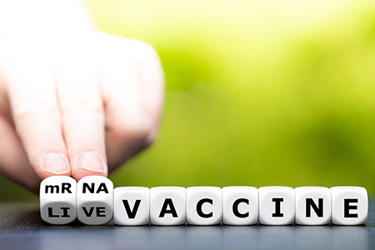Manufacturing Strategies For mRNA Vaccines And Therapeutics
By Laurens Vergauwen, Dr. Nargisse El Hajjami, Mag. Manuel Brantner, Dr. Shiksha Mantri and Bahar Cebi

Viral delivery systems such as adeno-associated virus (AAV) vectors are well established and approved for use as vaccines and gene therapies. Despite their widespread use, viral delivery systems can lead to immunogenicity and side effects. In addition, the manufacturing process can be complex and high titers are needed for gene therapy applications.
In contrast, non-viral delivery systems are expected to have a better safety profile and with simplified and lower cost manufacturing, offer the potential for a templated process.
mRNA technology uses non-viral delivery systems and offers a great deal of versatility. Delivery of an mRNA into the cytosol of a cell can induce the production of a target protein which can function as a therapeutic or prophylactic, act as an antigen to trigger an immune response for vaccination purposes, replace a defective protein or activate an anti-tumor response.
Strong early results for three mRNA vaccines against SARS-CoV-2 have implications that go far beyond the current pandemic and bode well for similar approaches in the fight against cancer, heart disease and other infectious diseases.
Get unlimited access to:
Enter your credentials below to log in. Not yet a member of Bioprocess Online? Subscribe today.
